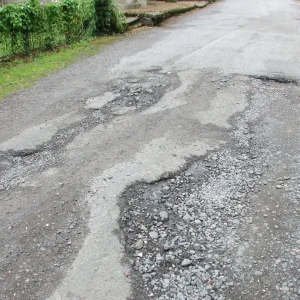Fleet operator organisation ACFO has launched a petition calling on HM Revenue and Customs (HMRC) to publish advisory fuel rates (AFRs) for plug-in cars.
According to ACFO, the absence of defined mileage reimbursement rates for 100% electric vehicles (EVs), range-extended EVs, and plug-in hybrid petrol and diesel models discourages some organisations from including plug-in vehicles on their company car choice lists.
ACFO says the launch of the petition, which is available on its website , comes after it hosted a fleet industry summit last year, which included representatives of the British Vehicle Rental and Leasing Association, contract hire and leasing companies, motor manufacturers producing plug-in vehicles, and fleet managers operating zero emissions and plug-in hybrid cars.
Following the summit, ACFO says it submitted data to HMRC, including the following:
. AFRs for cars with a battery capacity up to 40kW/h and above 40kW/h – 4p and 5p a mile respectively
. AFRs for plug-in hybrid petrol cars linked to electric mileage range and current engine capacity-based AFRs for petrol cars – reimbursement rates ranging from 5p to 19p a mile.
. AFRs for plug-in hybrid diesel cars linked to electric mileage range and current engine capacity-based AFRs for diesel cars – reimbursement rates ranging from 5p to 12p a mile.
It added that range-extended EV rates should be calculated using the above figures based on 90% electric mile range and 10% petrol/diesel mileage range, using appropriate AFR figures.
ACFO chairman John Pryor said: “The government is driving fleets along the plug-in road, but corporate take-up is not in the fast lane. One reason, ACFO believes, is due to their being no definitive mileage rate.
“Plug-in hybrid vehicles are at their most efficient when driven for as many miles as possible on electric power. Therefore, publishing lower AFRs for plug-in cars will help to encourage drivers to use the car in the optimal environmentally-friendly way.
“ACFO acknowledges that it is possible for businesses to calculate rates themselves and then obtain permission from HMRC to use them to reimburse drivers.
“However, it can be extremely time-consuming and difficult to obtain all the relevant data to undertake those calculations. Far better for HMRC to publish official figures as it does for petrol, diesel and LPG cars.”
Pryor said ACFO was disappointed that HMRC had failed to respond to its submission, but added: “Nevertheless, ACFO intends to keep up the pressure and hopes that fleet decision-makers and the industry will support the petition in their thousands.
“We will submit the petition to HMRC in early autumn in the hope that the government will make an announcement in this year’s November Budget that it will introduce AFRs for plug-in cars.”





